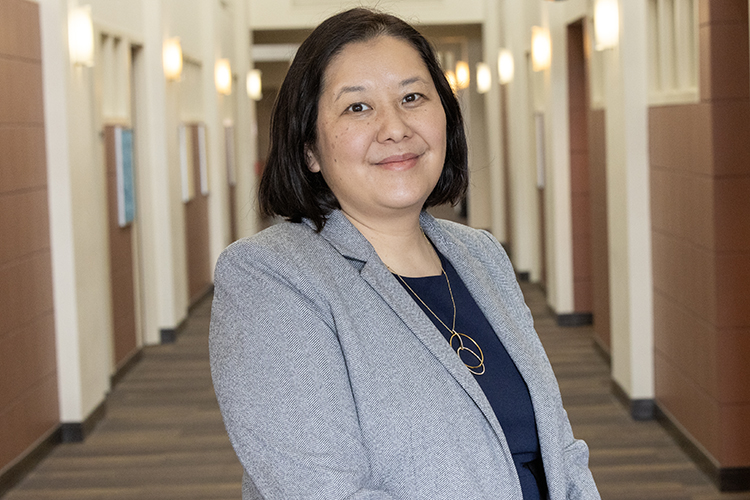We typically assume that changes in employment or profession trigger shifts to who we think we are in relation to our career—in other words, our career identity. Indeed, if we were to constantly question our career identity, we could end up in an identity crisis, not knowing who we are or what we want to do in our careers.
We all need a common thread that pulls together various work experiences we’ve had in our career so we know who we are and so we can express our career identity to others. Yet, we also need room to grow and to explore so that our careers don’t feel stagnant.
Research by Assistant Professor of Management, Dr. Keimei Sugiyama, co-authored with Dr. Jamie Ladge (Northeastern University) and Dr. Gina Dokko (University of California-Davis), suggests that career identity serves to both stabilize and anchor our sense of self as well as change and evolve in ways that may not be immediately apparent to those around them.
For example, a journalist could look across their work experiences that include being a part-time screenwriter and novelist and weave these various roles into the career identity of a storyteller. A manager could look at their successes and promotions and see themselves as a corporate executive – and they could also think about new product areas they have developed and launched for their corporation and see themselves as an entrepreneur.
Thus, even those who seem to be well-established in their careers can see and express themselves in inconsistent ways and those who seem to have a disjointed career trajectory can thread a common theme across a diverse array of work experiences.
So how do people identify with their careers in ways that give them a sense of stability in who they are but at the same time allow them to evolve and to grow in their sense of self?
In this research, Dr. Sugiyama and colleagues provide a career identifying process that explains how people form their self-concept through a paradox of stability and change.
A paradox is when what seems to be contradictory—such as the need to anchor and the need to evolve one’s career identity—are actually mutually reinforcing forces that push and pull and create tensions in how people make sense of their experiences.
The career identifying process explains that people address these tensions through both career identity maintenance and change. This “both … and …” paradox is what allows people to seem to be on a steady path with a clear progression but have smaller shifts that are slowly moving this trajectory in a whole new direction. That is, their career identity is slowly shifting and accumulates into a bigger change that may seem abrupt to others but has been percolating under the surface for quite some time.
What this research means for organizations and leaders is to understand that careers are inherently messy, and it benefits employers to account for this dynamism in people’s careers. That is, employees may seem like they are bouncing from position to position without a clear logic, yet have a perfectly coherent explanation for how they are threading together their work experiences.
It’s also possible for employees to be on a clear trajectory following the organizationally-defined structure for advancement, but make smaller shifts in who they are and want to be in their careers that underly substantial changes in their future career choices.
Keeping in mind that it is natural and even productive for employees to be thinking of themselves in this way can help employers to be more flexible and responsive to their employees’ career needs, leading to better retention of top talent.
This research is featured in Academy of Management Journal, “Stable Anchors and Dynamic Evolution: A Paradox Theory of Career Identity Maintenance and Change,” Keimei Sugiyama, Jamie J. Ladge, and Gina Dokko.
| Research@Lubar Faculty scholarship in the Lubar College of Business spans the business fields and beyond through both theoretical and applied research that is published in leading journals. Here are some of our faculty’s most recent publications: |
| Content and Style of Firm-Generated Posts on Social Media: A Study of User Engagement on Hedonic and Utilitarian Product Pages on Facebook Journal of the Association for Information Systems Authors: Scott Schanke, Gautam Ray, Gediminas Adomavicius, and Mihir Wagle |
| Climate Action Now: How to Fuel a Social Movement Journal of Consumer Psychology Authors: Lama Lteif, Gia Nardini, Tracy Rank-Christman, Lauren Block, Melissa G. Bublitz, Jesse R. Catlin, Samantha N.N. Cross, Anne Hamby, and Laura A. Peracchio |
| Data Avatars: A Theory-Guided Design and Assessment for Multidimensional Data Visualization Information & Management Authors: Fatemeh Mariam Zahedi, Kurt Pflughoeft, and Yan Chen |
| Click here to see more faculty research |
